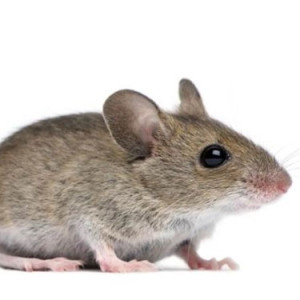#NuisanceNovember: Mice
Although they primarily consume grains, oats and corn, mice are known to feed on almost any form of food available to them. Even crops that are not fed upon by mice tend to become contaminated with mouse droppings, urine, saliva and their excrement – all of which can spread diseases to humans and animals.
It is for this reason that it is important to recognise an infestation as early as possible.
Signs that you have a mice infestation may be:
- Strong smell– Mice urinate frequently and their wee has a strong ammonia-like smell. The stronger the smell the closer you are to mice activity. This smell can linger for a long time (even after an infestation has been removed).
- Droppings– Usually the size of a grain of rice, mice produce between 50-80 droppings a night. These are small and dark, and are normally scattered randomly. Check inside and on your cupboards as well as along skirting in your property for droppings.
- Scratching noises– Often can be heard at night when mice are most active. Listen for noises between partition walls, under floorboards, in false ceilings, basements and lofts.
- Nests– Using easy to shred materials, mice then line the nest with other soft comforts. Check lofts, suspended ceilings, cavity walls, under floorboards, behind fridges, under stoves and in airing cupboards.
- Live or dead mice– Spotting a mouse during the daytime can be an indication of a heavy infestation.
Mice are excellent climbers, jumpers and are more than capable of fitting through openings much smaller than their bodies. These rodents can chew the shielding from electrical wires, creating a hidden fire hazard in your home or business. They can also ruin expensive furniture by building nests and shredding materials to use as bedding. The longer you ignore the problem, the more troublesome it could be to fix.
One female mouse can produce as many as 10 litters in one year. Babies are born just 20 days after mating, and are capable of reproduction themselves within two months. The normal life span of the mouse is between nine months and one year, so mouse infestations can grow rapidly and become extremely difficult to exterminate.
Cleanliness, mouse proofing and professional, customised pest control methods are often all necessary. Mice can be found in any room in a property from kitchens to lofts, and even in the cavities of the wall. They will exploit the smallest holes possible and gain entry into the premises looking for food and warmth.
As with our rat treatment, a mouse treatment starts with a thorough survey to try and establish how they have gained entry into the property, and then a decision will be made on how best to remove the vermin. Think you have a mic infestation? Contact us today for help, and in the meantime get involved in our #NuisanceNovember hashtag! Send us a tweet with any questions you might have about pest control!
